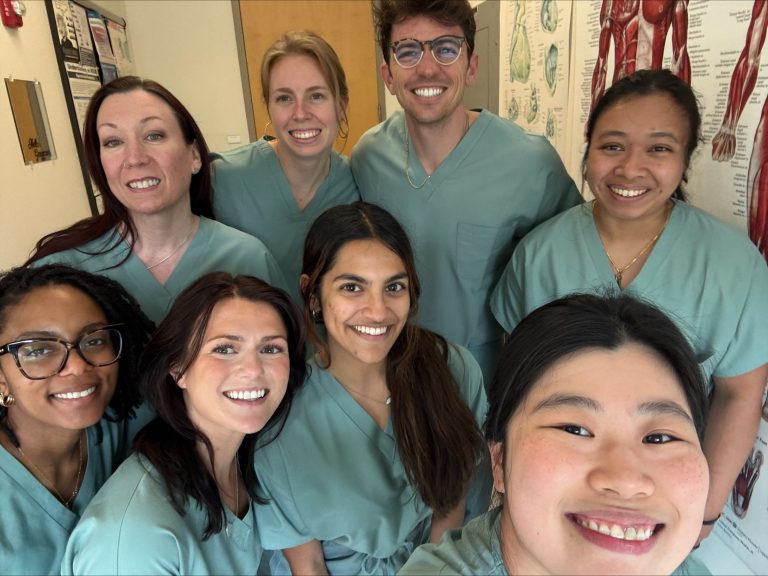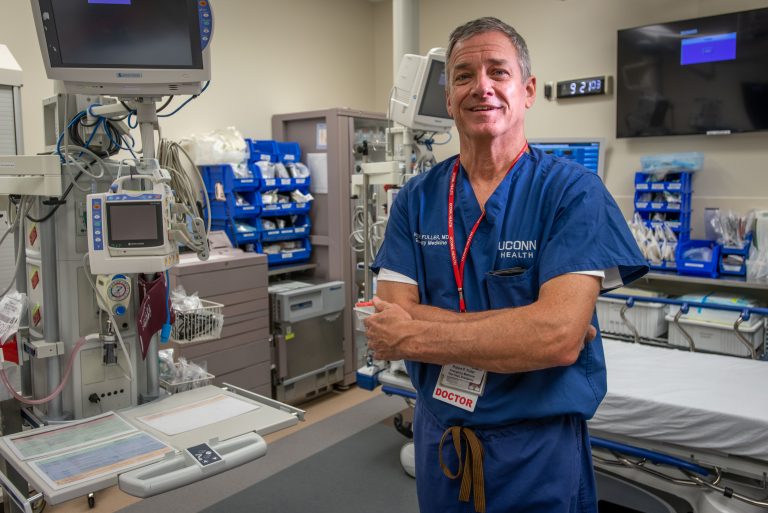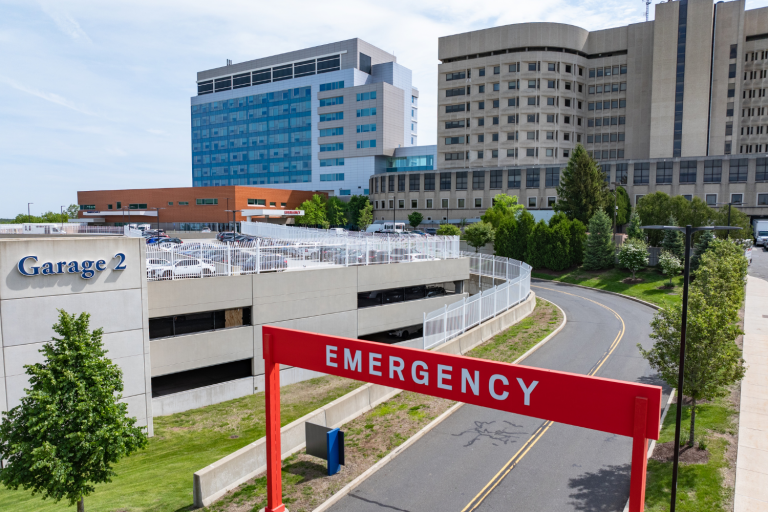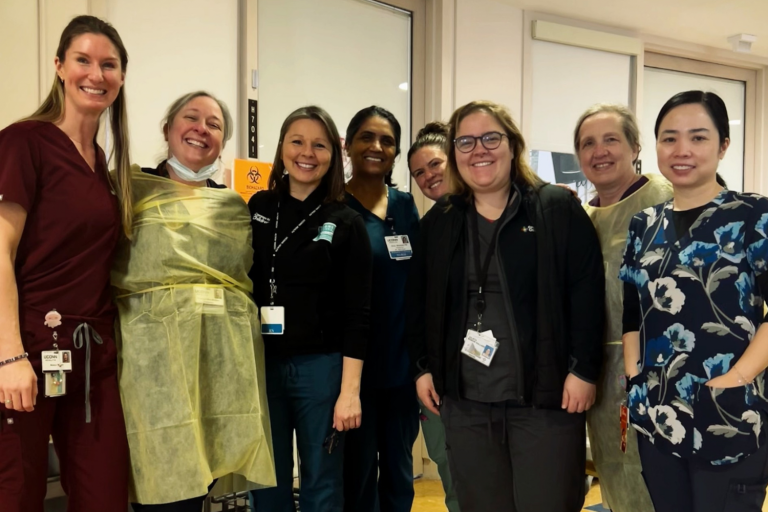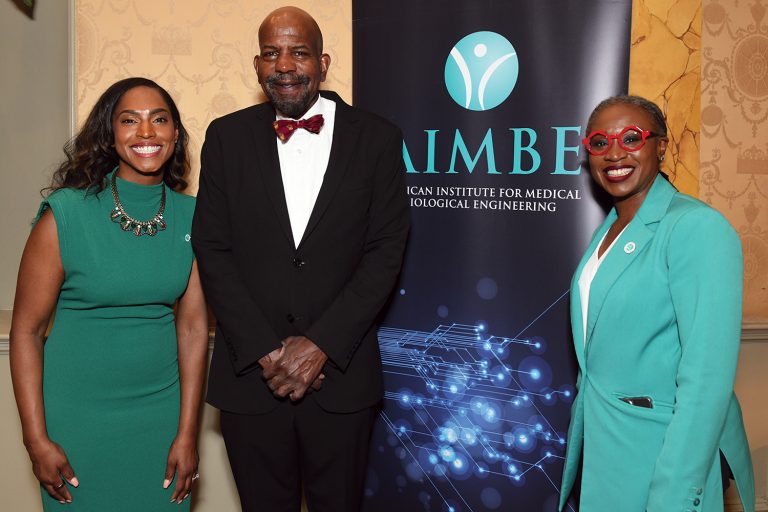Research
UConn School of Medicine is home to many cutting-edge research programs with renowned research teams propelling powerful discoveries and innovations. Since the medical school’s inception, part of its institutional fabric has been its commitment to advancing scientific and medical discovery by growing high-quality research programs. Today, our research enterprise has reached new heights with year-after-year landmark funding exceeding $100 million. Our research expertise knows no boundaries spanning across disciplines, campuses, state and international lines, from basic science to clinical research and trials, to translational research at the patient’s bedside, to population, public, behavioral and social health arenas. Our goal is improving the health and well-being of the people of Connecticut and the globe by translating our discoveries into new patient care advances, health care technologies, and biotech start-up companies.

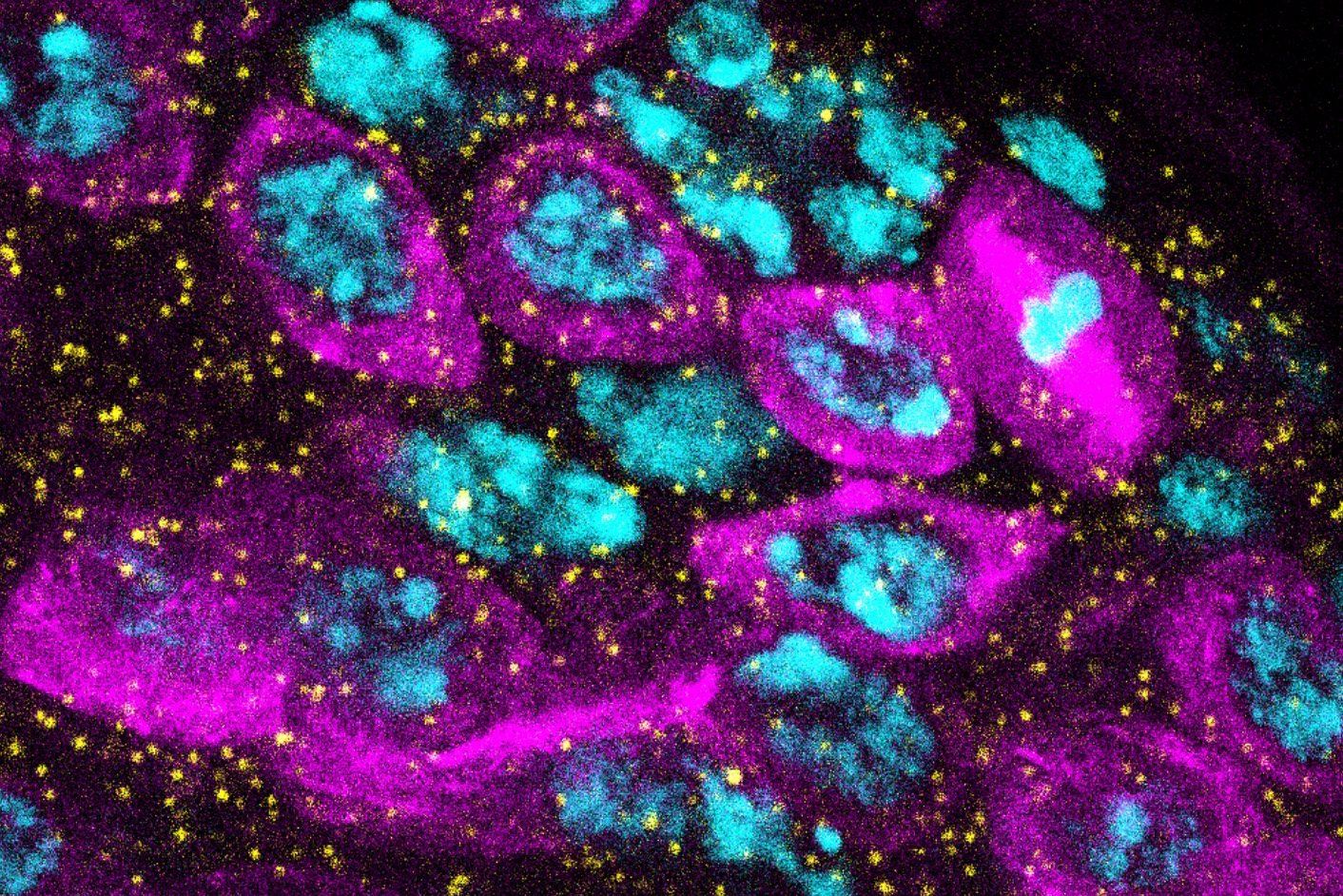
UConn School of Medicine study published in PNAS introduces Healthspan Proteomic Score as a biomarker for healthy aging
- category: lab-notes
- columns: 1
- pictures: true
- number-of-posts: 1
- read-more-text: Continue Reading
- show-excerpt: false
- show-date: false
- safe-fetch: 1
Research
Faculty in the School of Medicine are actively involved in a variety of innovative and cutting edge basic science, epidemiological, biobehavioral, and clinical/translational research activities. A major focus of this effort is the translation of our discoveries into advances in patient care and the licensing of new technologies and devices to the private sector.
In the News
In the News
New England Donor Services Launches New Medical Student Summer Immersion Program to Advance the Future of Organ Donation and Transplant Equity.
Dr. Robert Fuller leaves a legacy at UConn Health and beyond
UConn investigators uncover new risk factors linking depression and dementia
UConn John Dempsey Hospital has once again been nationally recognized for delivering high-quality, lifesaving care—earning three major 2025 awards from the American Heart Association.
UConn Health and Connecticut Children’s have made history by dosing the first patient in a clinical trial using gene editing to treat glycogen storage disease type 1a (GSD1a)
Sir Cato T. Laurencin, M.D., Ph.D., K.C.S.L, was the designated honored guest at the American Institute for Medical and Biological Engineering (AIMBE) President’s Circle Reception in Washington, DC.
Dr. Priscilla Mapelli earns community service award from residency program consortium
Prostate cancer is one of the most common cancers in men, but when caught early, it’s highly treatable. For Vernon Owens, a routine check-up at UConn Health led to an early diagnosis that may have saved his life. His story is a powerful reminder of the importance of PSA screening and staying proactive about men’s health.
- category: meds
- columns: 4
- pictures: true
- number-of-posts: 8
- read-more-text: Continue Reading
- show-excerpt: true
- show-date: true
- safe-fetch: 1
Foot and Mouth Disease was eradicated in the US in 1929, and researchers are working to make sure it stays that way
Making domestic lithium recovery economically and environmentally viable is a critical goal for meeting the nation’s increasing appetite for energy storage and sustainability
Dr. Robert Fuller leaves a legacy at UConn Health and beyond
That connection you feel with fellow fans at the game? It’s even more powerful than you think
- category: school-of-medicine-research
- columns: 4
- pictures: true
- number-of-posts: 4
- read-more-text: Continue Reading
- show-excerpt: true
- show-date: true
- safe-fetch: 1
Got Research News?
Do you have an embargoed research publication or national meeting abstract presentation coming up? If you think it might catch the media’s attention due to its significant impact on the future of health sciences or patient care, please fill out this online form before the embargo lifts to have it featured by UConn Health’s News Team.

